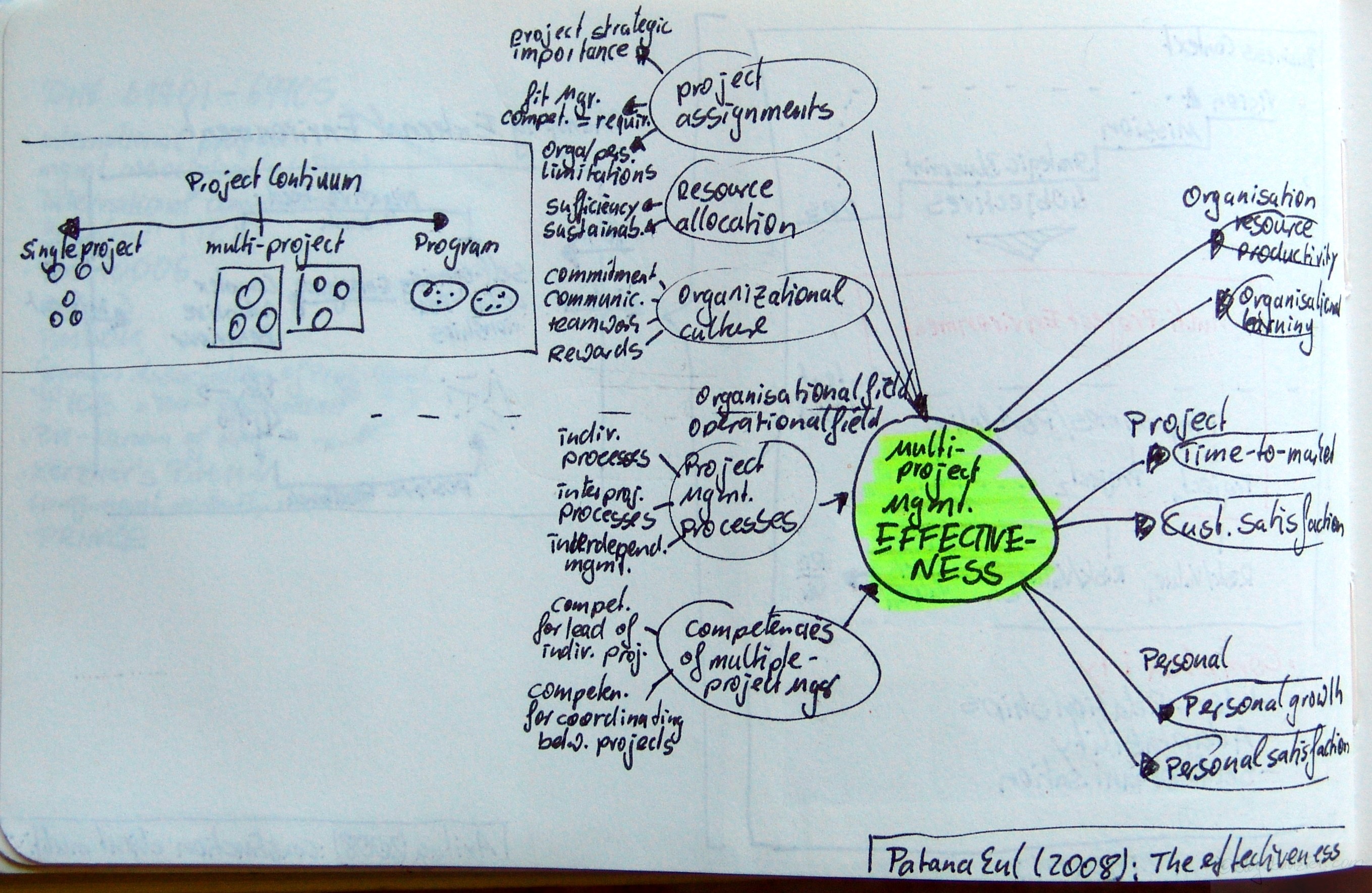 Patanakul, Peerasit; Milosevic, Dragan: The effectiveness in managing a group of multiple projects: Factors of influence and measurement criteria; in: International Journal of Project Management, in press, corrected proof.http://dx.doi.org/10.1016/j.ijproman.2008.03.001Update: This article has been published inInternational Journal of Project Management, Vol. 27 (2009), pp. 216233. Multi-project management. I covered a similar topic yesterday looking at it from a Complexity Theory viewpoint. The authors argue that multi-project management is increasingly used in the industry mainly for reasons of better utilisation. [Having worked as a multi-project manager for marketing projects back in the old days, I don’t know if that is really true. My projects always culminated in a week with crazy workload, followed by dry spells, where I bored myself to death.]Patanakul & Milosevic analyse the critical success factors for managing multi-projects from a ‚bundle of projects‘-perspective, i.e., by interviewing a multi-project manager and his/her supervisor. Thus they build six case studies of organisations using multi-project-management. Accordingly the authors define multi-project as the middle state in the project continuum, where single projects are on one end, and programmes are on the other end of the scale.What do Patankul & Milosevic find? The antecedents of multi-project management effectiveness are
Patanakul, Peerasit; Milosevic, Dragan: The effectiveness in managing a group of multiple projects: Factors of influence and measurement criteria; in: International Journal of Project Management, in press, corrected proof.http://dx.doi.org/10.1016/j.ijproman.2008.03.001Update: This article has been published inInternational Journal of Project Management, Vol. 27 (2009), pp. 216233. Multi-project management. I covered a similar topic yesterday looking at it from a Complexity Theory viewpoint. The authors argue that multi-project management is increasingly used in the industry mainly for reasons of better utilisation. [Having worked as a multi-project manager for marketing projects back in the old days, I don’t know if that is really true. My projects always culminated in a week with crazy workload, followed by dry spells, where I bored myself to death.]Patanakul & Milosevic analyse the critical success factors for managing multi-projects from a ‚bundle of projects‘-perspective, i.e., by interviewing a multi-project manager and his/her supervisor. Thus they build six case studies of organisations using multi-project-management. Accordingly the authors define multi-project as the middle state in the project continuum, where single projects are on one end, and programmes are on the other end of the scale.What do Patankul & Milosevic find? The antecedents of multi-project management effectiveness are
- Organisational field
- Project assignments
- Projects‘ strategic importance
- Required fit to managers‘ competencies
- Organisational & personal limitations
- Resource allocation
- Sufficient resource allocation
- Sustainable resource allocation
- Organisational culture
- Commitment
- Communication
- Teamwork
- Rewards
- Project assignments
- Operational field
- Project management processes
- Individual processes
- Inter-project processes
- Interdependency management
- Competencies of the multi-project manager
- Competencies for leading individual projects
- Competencies for coordinating between projects
- Project management processes
Finally the authors identify the consequences of multi-project management effectiveness as
- Organisation
- Resource productivity
- Organisational learning
- Project
- Time-to-Market
- Customer satisfaction
- Personal
- Personal growth
- Personal satisfaction